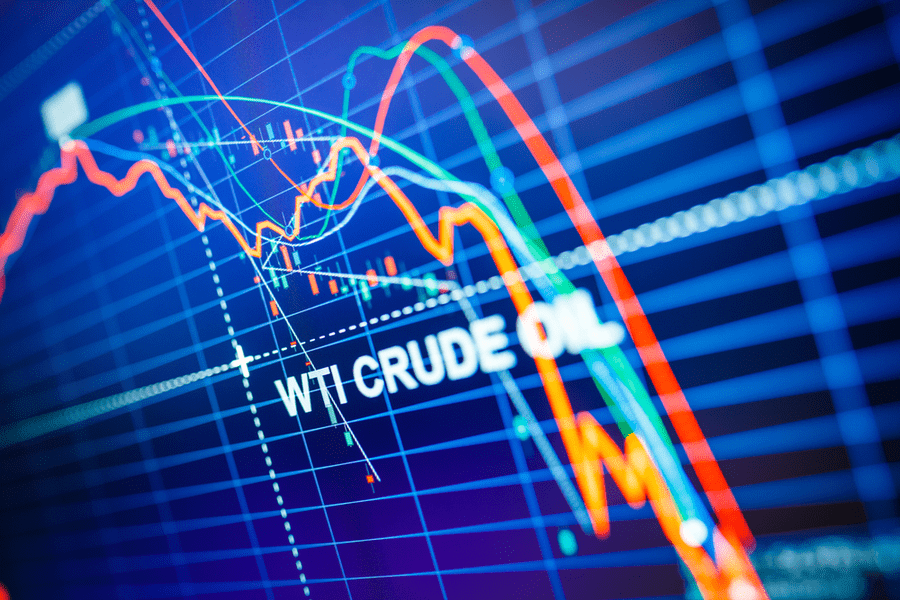
Investing in oil with futures
Due to the importance of oil as an energy source, oil futures cannot be underestimated. Currently, there is no energy source that can provide more energy per unit of extraction costs than oil, despite the serious search for alternative energy sources. For the time being, our cars will continue to run on (mainly) oil for a while, possibly in combination with electricity, such as the hybrid vehicles that are becoming increasingly popular. There are still abundant oil reserves, so there is no shortage on the oil market.
Day traders are always looking for volatility. If there is one thing that has been moving in recent years, it is the oil market. These movements offer opportunities and arouse the interest of many traders to invest in oil . However, it is not that easy to invest in oil. There are many different ways to invest in oil. The most direct, besides storing oil barrels in the shed, is to invest in an oil future.
Oil Futures: What Are They?
To understand what oil futures are, it is important to understand what the futures trading product entails. Read our article: ‘ What is a futures contract? ‘.
Oil futures are contracts in which you agree to exchange a predetermined amount of oil on a certain date at a fixed price. These futures are traded on futures exchanges and are usually used to buy and sell oil. When the value of oil rises or falls, the price of the oil futures moves with it.
Companies use futures to fix a favorable price for oil and in this way hedge against unfavorable price movements. However, this trading product is also popular among speculative traders. After all, no physical barrels of oil need to be delivered. The contract must be fulfilled. This can be done via a cash settlement.
Speculating on fluctuations in the oil price
Oil will probably remain the most widely used energy source on earth for some time. Oil is traded on designated markets. Both crude oil and all kinds of processed oil products can be traded there. Can you as an investor make money by trading in oil? You certainly can. A good way to speculate on oil prices is to invest in oil futures. Because the oil market is a very speculative market, we speak of speculation rather than investment. Unexpected price results are the rule rather than the exception when you invest in oil.
Buy oil futures
There are several oil futures that you can buy. The most well-known is the Light Sweet Crude Oil future (ticker: CL) . This is based on West Texas Intermediate (WTI). Anyone who wants to invest in this future will need a fat wallet because one point in the CL is equal to 1000 dollars.
Another popular oil future is the Brent Crude Oil future (ticker: BZ) . This future is based on Brent oil and just like the Crude Oil future, the multiplier is 1000 dollars. Both futures are based on a different variant of oil, which means that the value development is slightly different. Of course, the prices generally move in the same direction.

Risks of trading oil futures
Oil contracts are traded regularly on regulated markets. For traders, it is therefore easy to respond to trends in the oil price. Speculators try to profit from the movements. Be careful! There are numerous variable factors that ultimately determine the price of oil, both expected and unexpected. The risk is that speculators may suffer large losses with trading in oil futures.
How do oil futures contracts work?
The basic principle of futures contracts in general is simple and is based on supply and demand. This is also the case on the oil markets. The buyers of a contract go ‘long in oil’ and hope for profit through an increase in the oil price. The sellers of a contract, on the other hand, go ‘short in oil’ and hope for a decrease in the oil price. In addition to these two parties, there are also other factors that play a role in practice, including the oil producers who use oil futures to hedge against unexpected price movements on the oil market.
Oil futures in practice
Buyers and sellers of oil futures set a price based on supply and demand. This is not the price at which oil is trading today, but at a specific date in the future. For example, suppose a barrel of oil is currently priced at $40 per barrel, and the buyer of the oil futures expects that price to rise to $45 for a contract expiring in June. If this price target is reached, the buyer hopes to make a profit.
Yet another speculator expects the price in June to be much lower than 40 dollars and has a price target of 35 dollars in mind. This party sells futures in the expectation of buying them in June at a lower price. If the buyer is right and the oil price rises to 45 dollars, the investor realizes a profit of 5 dollars per contract in June. He had bought the oil futures for 40 dollars. In this example, the person who sold oil futures suffers a loss, because he will have to buy more expensive than what they were sold for.
To trade oil futures it is essential that you have a good vision of the market. This can be done by keeping a close eye on it. You can also choose to trade purely on price movements.
Many investors choose to use a trend following system. When the price is in an upward trend, you receive a buy signal. When the trend is downward, you receive sell signals.
Our reading tips
for the novice investor
